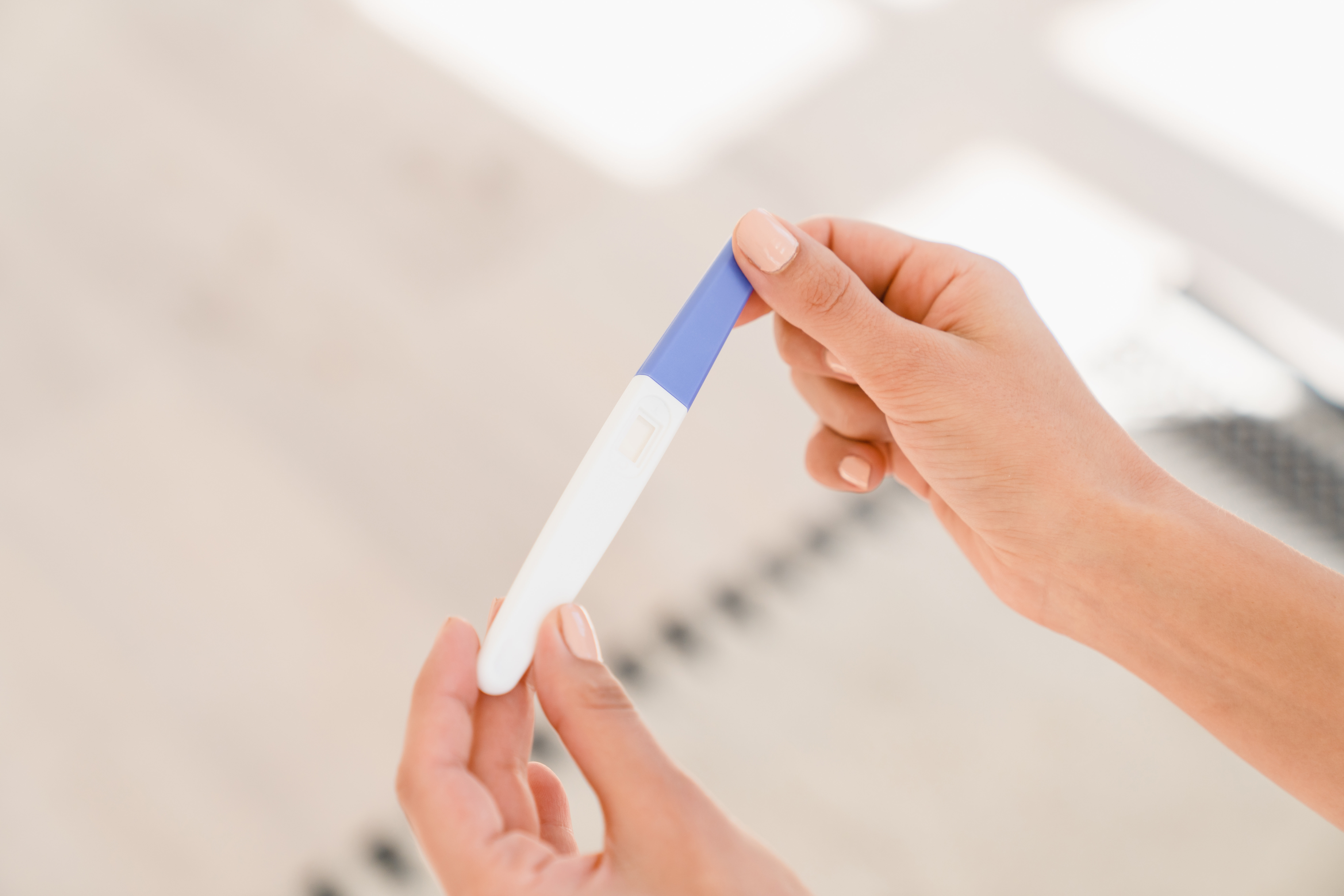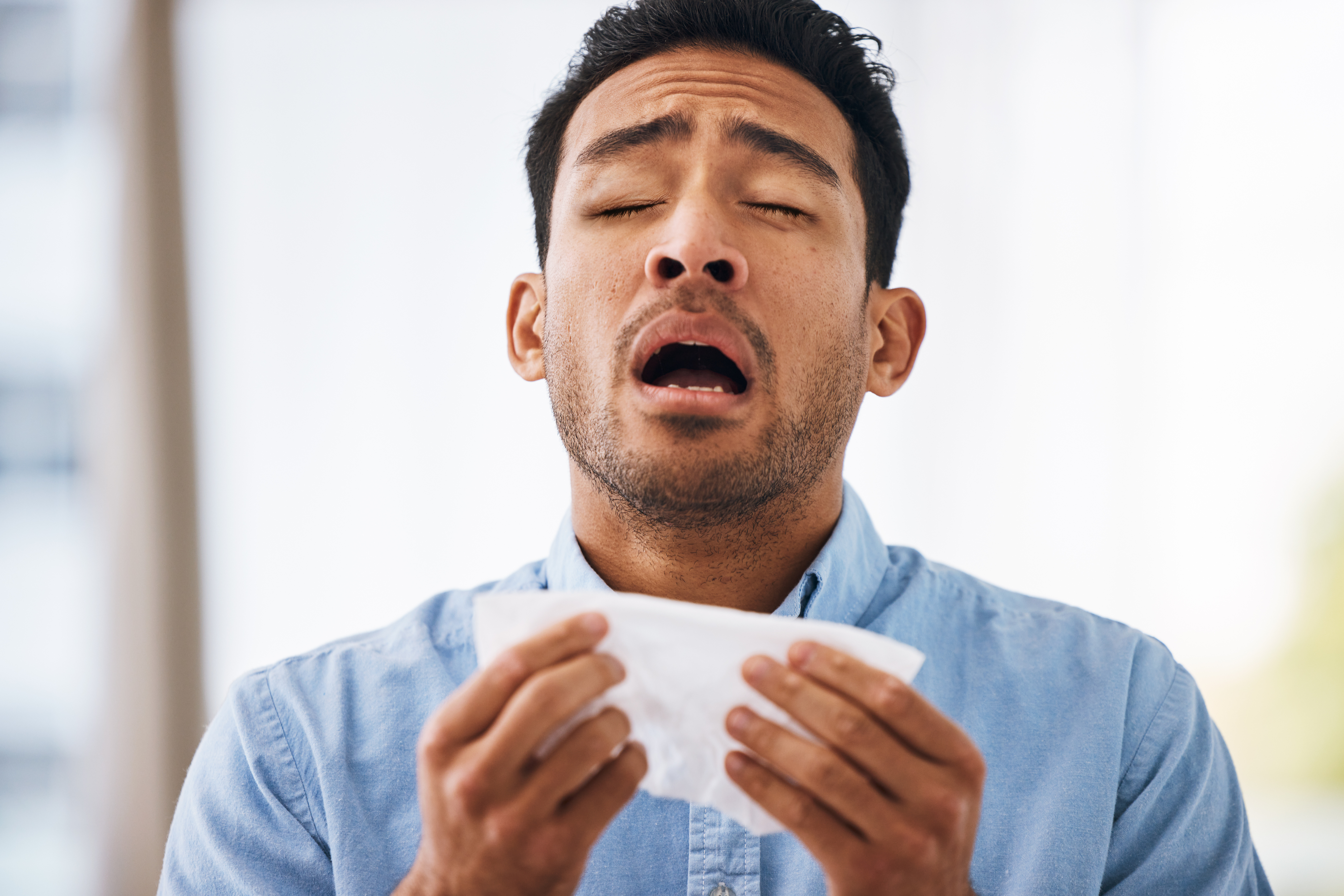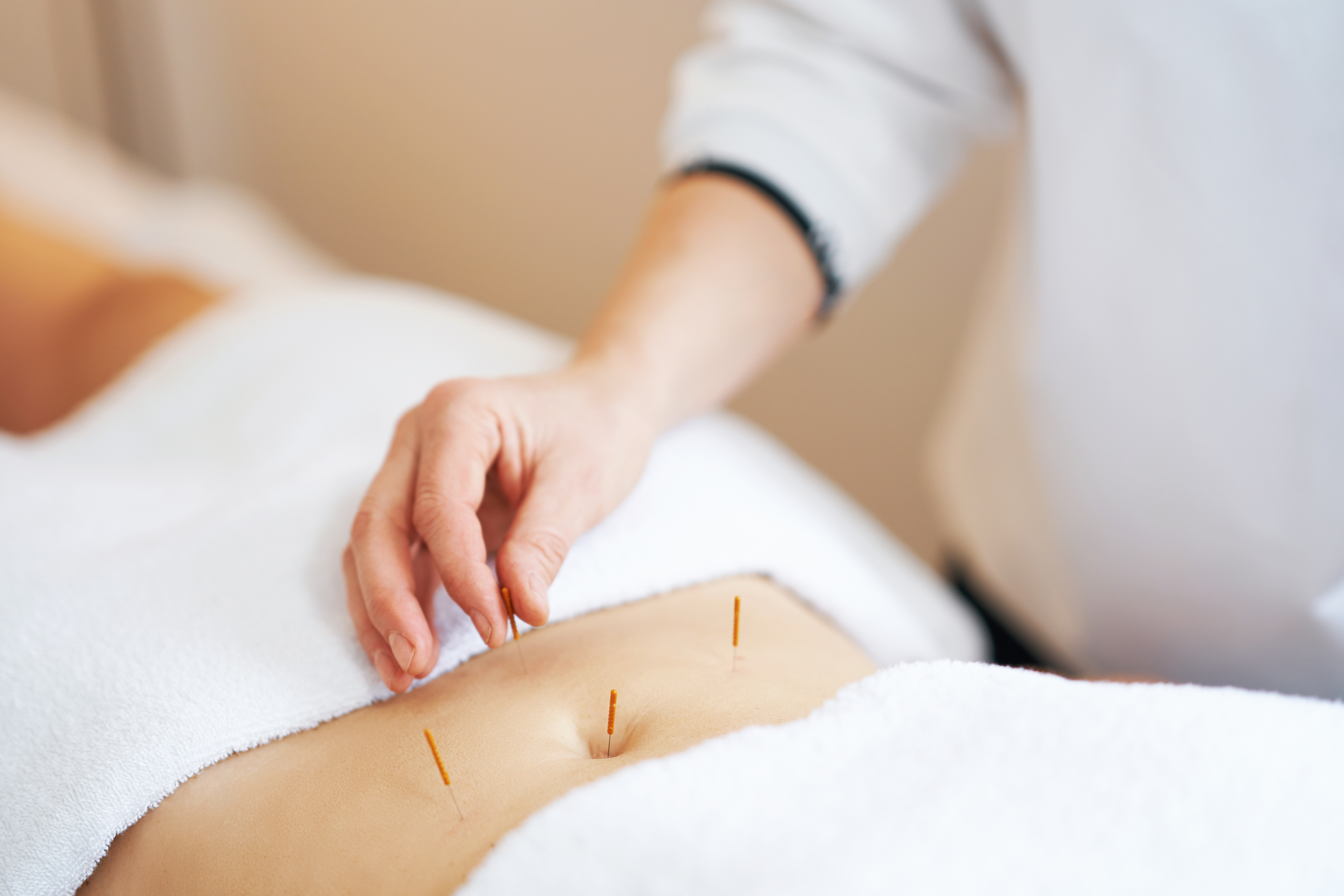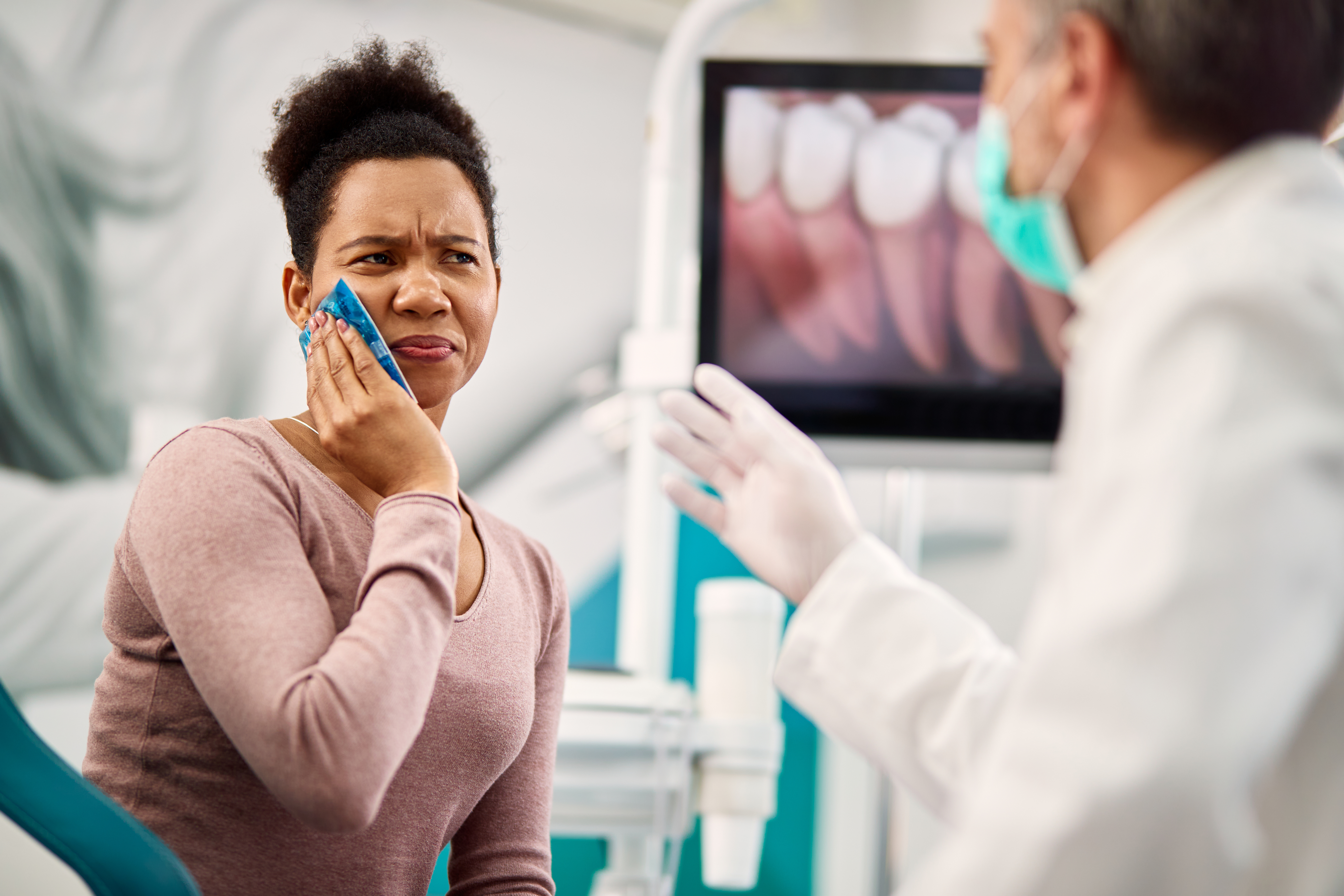Unexpected Ailments You Never Knew Acupuncture Could Tame
Feeling overwhelmed by pain, stress, or other health challenges? You're not alone. Millions of Americans are turning to acupuncture, an ancient healing practice that's proving surprisingly effective in modern times. It might seem mysterious – tiny needles? – but the science behind it is growing stronger every day. Acupuncture works by tapping into your body's natural energy flow, or Qi, to trigger healing and restore balance. In this article, we've expanded our coverage to explore 21 common conditions that can find relief through acupuncture, empowering you to make informed decisions about your health.
1. Anxiety And Depression

Acupuncture is a complementary treatment that can be added to a traditional treatment regimen for anxiety and depression. These conditions may occur alone or simultaneously. When patients have anxiety, they feel anxious and panicked. With depression, they may be uninterested and apathetic. When the conditions occur together, patients may find themselves essentially flip-flopping, making it immensely difficult to participate in daily life. Medications can help, but the side effects can sometimes be too much for patients to handle. In some cases, medications, talk therapy, and other treatments are simply not enough. In these specific cases, acupuncture might be able to fill in the gap and offer an alternative solution to patients looking to gain greater control over their symptoms. Many patients report some relief from their symptoms after their first session, but it may take several visits to recognize the full benefits. When acupuncture is helping, it is typically advised that patients have regular treatments at least once a week.
2. Insomnia

This condition may result from an array of medical or psychiatric conditions, certain substances or medications, poor sleep habits or biological factors. This condition is characterized by the brain essentially not being able to stop being awake. The sleep/wake cycle is interrupted. Not getting sufficient sleep can cause complications in all areas of a patient’s life. There are medications that are beneficial, but the side effects may prevent patients from being able to use them. For example, side effects might include daytime sleepiness and not hearing the alarm to wake up. Acupuncture has become a relatively common alternative treatment for insomnia. It is believed that this method regulates the body’s yin and yang. Once these are regulated, the patient’s health is reinforced, and the pathogenic causes of their insomnia are eliminated, resulting in them being able to sleep once again and experience a restful, full night's sleep.
3. Arthritis

Arthritis is a very common disorder and osteoarthritis is the most common type. Almost all individuals develop some degree of arthritis as they get older as wear and tear causes it. As people use their joints over the decades, the cartilage at the end of the bones that protects them starts to wear down. Once it is gone, the bones rub against each other. This is what causes the tenderness, flexibility loss, pain, stiffness, grating sensation, and in some cases, bone spurs. Medications and physical therapy can help patients to retain their mobility. However, acupuncture has also been shown to be an effective complement to traditional therapies. A recent study performed by the National Institutes of Health concluded that acupuncture might improve mobility by approximately forty percent and reduce pain by forty-four percent. It helps patients to relax and may stimulate blood flow to arthritic areas to promote healing and to reduce the speed at which joint damage is progressing.
4. Sciatica
Sciatica is a condition that is characterized by pain associated with the sciatic nerve and its location in the body. In most cases, only one side of the body displays symptoms. The path the pain takes can start in the buttocks or lower back and travel into the hips and then down the leg. A herniated spinal disc is the most common cause because the disc can protrude and press on this nerve. In addition to pain, numbness in the leg can also occur as a result of the compression and inflammation. The pain can be excruciating for some people, and traditional treatments might not help all patients. Acupuncture is quickly becoming a common treatment for this condition. It may aid this condition by releasing natural painkillers to make the pain more tolerable. These natural painkillers include enkephalins and endorphins. This complementary treatment may also help to deliver more blood to the affected area and relax the muscles that are located near this nerve.
5. Carpal Tunnel Syndrome

Carpal tunnel syndrome is very common, and it is most often seen in those who have hobbies or jobs that require repetitive wrist movements. For example, those who type for a living are commonly affected due to the repetitive motion associated with typing. This condition occurs when a nerve in the wrist’s carpal tunnel region becomes compressed. This can result in varying degrees of tingling, numbness, pain, and weakness of the affected wrist. Surgery or steroid injections are generally recommended when this condition starts interfering with the function of the affected wrist. While both can be beneficial, some patients might want to try less invasive measures first, such as acupuncture. When acupuncture is used for this condition, it may be coupled with electric stimulation. This treatment has been shown to improve nerve conduction in the compressed nerve. This resulted in reduced pain and other symptoms, according to a recent study. Receiving acupuncture regularly may allow some patients to go longer without needing invasive treatments.
6. Chronic Stress

When the pressures we face in our daily lives begin to add up, it is incredibly easy to feel overwhelmed, unhappy, and anxious about the little and big things. Long-term stress can pose a significant risk to an individual’s health, as stress can cause organ damage, weaken the immune system, and also increase their risk of developing cancer. Chronic stress can also lead to frustration, low energy levels, and moodiness, which can also lead to the development of anxiety and depression. Rather than taking antidepressants or other prescribed medications, acupuncture offers effective stress relief that is natural without any side effects. For one, many individuals have found acupuncture to be a soothing and relaxing treatment, especially when we feel exhausted and stressed due to work, exertion, or our personal lives. Acupuncture can help treat stress as it provides support and reenergizes the body, as this alternative treatment uses energy points to increase one’s energy levels by inserting small, thin needles into specific points along the body.
7. The Common Cold

At some point in our lives, we have all had a common cold and flu. Also known as respiratory viral infections, the common cold is an infection the infiltrates the upper respiratory tract and is the dominant cause of mortality throughout the world. The common cold is characterized by a runny nose, sneezing, coughing, headache, fever, and nasal obstruction. So far, there have not been many studies done into the effectiveness of acupuncture with fighting off the common cold and flu. However, with the few studies that have been done, research has indicated that patients receiving acupuncture have increased immune-enhancing hormones and blood counts for up to three days after the treatment, which can greatly help reduce cold and flu-like symptoms while combating the infection at the same time. Acupuncture is reported to also help prevent future colds and flus by boosting a patient’s immune system, helps them get over a cold or flu faster, reduces symptoms such as fever, chills, and body aches, while also relieving a sore throat and congestion. Acupuncture is also believed to have a detoxification effect on the body through the amelioration of antioxidant defense systems, helping to not only fight off a cold but prevent it from developing as well.
8. Asthma

Asthma can be a frustrating and challenging condition to keep control of. There are numerous medications that can help relieve asthma symptoms, including inhalers and antihistamines, however, many patients worry about their long-term health and breathing when it comes to using these medications for an extensive period of time. As a result, acupuncture may be a helpful remedy! Acupuncture is an ancient treatment that believes that energy flows through the body, containing both positive and negative forces. Conditions such as asthma are believed to be an imbalance of these forces, as energy flows through these specific paths, known as meridians. Specifically for asthma, needles are placed in the upper back and hand to help open up the lungs to allow more air to flow throughout the body and to the lungs as well. Unfortunately, there hasn’t been much research done to prove the effectiveness of acupuncture with treating asthma. Numerous studies have been done with mixed or less satisfactory results, with some research suggesting that acupuncture can help reduce a patient’s need for inhaled steroids, especially in children, but more research is necessary at finding how effective this type of treatment truly is.
9. Sinusitis And Rhinitis

Chronic sinusitis and allergic rhinitis are two common types of chronic nasal and sinus congestion that an individual can develop. Chronic sinusitis is when the lining of the sinus becomes inflamed that is either acute or chronic, and sinusitis is caused by nasal polyps, a deviated septum, respiratory tract infections like colds, or as a complication of another disease. Chronic sinusitis can also be caused by allergic rhinitis. Symptoms of this type are similar to allergic rhinitis and include headaches, yellow discharge, and ear pain or pressure. Allergic rhinitis, commonly known as hay fever, is caused by environmental allergens or irritants, and this condition causes the nose to become blocked, which then blocks the sinuses, causing sinusitis. By inhaling allergens, such as grass, trees, dust, dander, mold, and more, the body’s immune system reacts to these allergens by releasing antibodies that attach to mast cells, releasing multiple chemicals. Symptoms of allergic rhinitis are nasal congestion, postnasal drainage, itching, sneezing, and itchy or watery eyes. Acupuncture treatment can help treat both of these conditions by correcting the flow of energy in the body to target the underlying cause, relieving nasal symptoms and prevent them from returning. Acupuncture has been shown to help open up the nose and airways, reducing congestion and relieving pain from sinus pressure.
10. Poor Eyesight & Eye Conditions

According to some studies, when the body is experiencing an imbalance, it can become an eye problem or condition. When acupuncture is done, any imbalances within the body that are causing symptoms will be taken care of as it helps to restore the body’s energy, known as Qi. Eye acupuncture is mainly focused on promoting adequate circulation of Qi and blood around the eyes, and acupuncture can be used as an alternative treatment for chronic dry eye syndrome. To further these claims, numerous studies have been conducted that have proven the effectiveness of acupuncture for treating poor eyesight and eye diseases. These studies have shown that acupuncture can reduce the temperature of the afflicted eye’s surface, alleviating evaporation of the eye’s natural tears throughout the day, helping those with dry eye syndrome. Acupuncture is also used as an alternative remedy for glaucoma, as studies have proven that eye pressure caused by this condition significantly decreased after a session. Other studies have shown that acupuncture successfully reduces symptoms of allergic and inflammatory eye disease, as well as macular degeneration and cataracts.
11. Chronic Pain And Inflammation

Regardless if your pain is in the back, neck, shoulder, elbow, knee, or muscle spasms, acupuncture has been proven to help relieve symptoms of chronic pain and help soothe inflammation that affects the joints, muscles, and ligaments throughout the body. Typical treatments for chronic pain and inflammation are cold and hot compresses, anti-inflammatory medications, exercises, and physical therapy. When these classic treatments fail to relieve symptoms, acupuncture is a fantastic option for treating this type of pain. Research done by an international team of experts has proven that acupuncture does provide real relief from common forms of pain and inflammation. The experts did a total of twenty-nine studies, involving 18,000 participants to test the accuracy of acupuncture as alternative medicine, with some groups receiving real acupuncture, others having fake acupuncture or none at all. The overall results showed that acupuncture relieved pain by a whopping fifty percent, with the findings being published in the Archives of Internal Medicine. The theory is that acupuncture eases pain throughout the body by affecting and balancing neurotransmitters, hormone levels, and the immune system.
12. Migraines and Headaches

Migraines and chronic headaches can be debilitating, significantly impacting quality of life. While medications exist, many people seek alternative or complementary therapies. Acupuncture offers a promising approach to both prevent and alleviate these headaches. It's believed that acupuncture can modulate blood flow in the brain, release muscle tension in the neck and shoulders, and influence neurotransmitter levels. Studies have shown that regular acupuncture treatments can reduce the frequency and intensity of migraines, offering a drug-free option for those seeking relief from chronic head pain.
13. Nausea and Vomiting

Acupuncture has shown remarkable efficacy in managing nausea and vomiting, particularly in specific situations. It's a well-established treatment for post-operative nausea and vomiting (PONV), often used in hospitals. Additionally, acupuncture can be a helpful tool for individuals undergoing chemotherapy, reducing the severity and frequency of nausea. Even morning sickness during pregnancy can be alleviated with acupuncture, offering a safe and natural alternative to medication. The mechanism is thought to involve the stimulation of specific points that influence the nervous system's control of nausea.
14. Fibromyalgia

Fibromyalgia is a chronic condition characterized by widespread musculoskeletal pain, fatigue, and tenderness in specific areas. Managing fibromyalgia can be challenging, as traditional treatments may not always provide adequate relief. Acupuncture offers a complementary approach that may help alleviate pain, improve sleep quality, and reduce fatigue. It's thought that acupuncture can modulate pain signals in the brain and promote the release of endorphins, the body's natural painkillers. While not a cure, acupuncture can be a valuable part of a comprehensive fibromyalgia management plan.
15. Infertility

Acupuncture is increasingly being explored as a complementary therapy for both male and female infertility. In women, it may help regulate menstrual cycles, improve blood flow to the ovaries and uterus, and reduce stress levels, which can positively impact fertility. For men, acupuncture may improve sperm quality and motility. While research is ongoing, acupuncture offers a potentially supportive and less invasive approach for couples seeking to enhance their fertility. It's often used in conjunction with conventional fertility treatments.
16. Digestive Disorders

Acupuncture can be a helpful tool for managing various digestive disorders. Conditions like irritable bowel syndrome (IBS), constipation, and bloating may respond well to acupuncture treatments. By stimulating specific points, acupuncture may help regulate gut motility, reduce inflammation, and alleviate abdominal pain. It can also help manage stress, which is a known trigger for many digestive issues. Acupuncture offers a holistic approach to digestive health, addressing both the physical and emotional aspects of these conditions.
17. Addiction

Acupuncture is sometimes used as a complementary therapy in addiction treatment programs. While not a standalone cure, it may help reduce cravings, alleviate withdrawal symptoms, and promote relaxation. Acupuncture can be used to support individuals struggling with substance abuse, including alcohol, nicotine, and opioids. By stimulating specific points, it may help regulate neurotransmitter levels and reduce the stress and anxiety associated with addiction. It's important to note that acupuncture is most effective when used as part of a comprehensive treatment plan that includes counseling and support groups.
18. Allergies

Seasonal allergies, such as allergic rhinitis, can cause significant discomfort with symptoms like sneezing, congestion, and itchy eyes. While antihistamines and other medications can provide relief, acupuncture offers a complementary approach. Acupuncture may help regulate the immune system's response to allergens, reducing the release of histamine and other inflammatory chemicals. It can help alleviate nasal congestion, itching, and other allergy symptoms, offering a more natural way to manage seasonal allergies.
19. Stroke Rehabilitation

Acupuncture is being explored as a potential adjunct therapy in stroke rehabilitation. It may help improve motor function, speech, and other neurological deficits that can result from stroke. By stimulating specific points, acupuncture may promote neuroplasticity, the brain's ability to reorganize itself. While more research is needed, acupuncture shows promise as a supportive treatment to enhance recovery after a stroke.
20. Weight Management

While not a magic bullet, acupuncture may play a supportive role in weight management. It's thought that acupuncture can help regulate appetite, reduce cravings, and improve metabolism. It can also help manage stress, which is a common factor in overeating. Acupuncture is most effective when combined with a healthy diet and regular exercise. It can be a helpful tool for individuals seeking a holistic approach to weight loss.
21. Dental Pain

Acupuncture can be a valuable tool for managing dental pain. It can be used to alleviate pain following dental procedures, such as extractions or root canals. It may also help manage temporomandibular joint (TMJ) pain and other dental-related discomfort. Acupuncture offers a drug-free approach to pain relief, making it a suitable option for individuals seeking alternatives to pain medication.
Taking Charge of Your Health with Acupuncture

Acupuncture, rooted in ancient wisdom and increasingly supported by modern research, offers a compelling approach to health and wellness. From managing chronic pain and mental health conditions to supporting fertility and stroke rehabilitation, its potential benefits are vast and varied. While not a cure-all, acupuncture can be a powerful complementary tool, working alongside conventional medicine to enhance healing and improve overall well-being. It's crucial to seek treatment from a qualified and licensed practitioner to ensure safety and effectiveness. As you explore your options for better health, consider acupuncture as a holistic and potentially transformative therapy. Its ability to address both physical and emotional aspects of health makes it a valuable addition to a well-rounded wellness plan, empowering you to take a more active role in your own healing journey.
